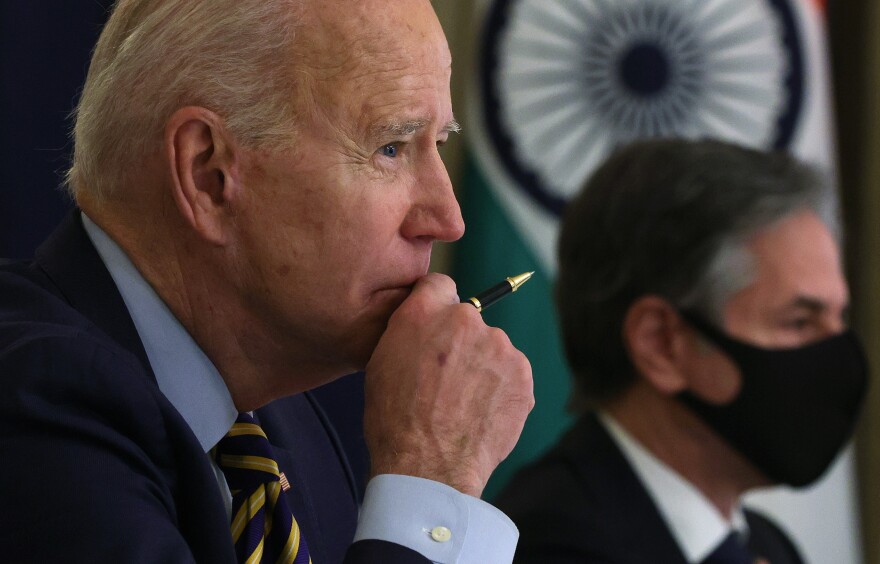Australia's ambassador to the U.S. says "pull out our smelling salts."
Kevin Rudd, who is also a former prime minister, tells Morning Edition he believes President Biden's decision to put off a security meeting in Sydney with leaders of Australia, India and Japan will have little impact on regional security or efforts to counter China's regional influence.
Biden, who is attending the G7 summit in Japan, said he was postponing his attendance at the Quad-conference to focus on the political fight over the debt ceiling in the U.S. In an interview with NPR's Leila Fadel, Rudd says, "The relationship between the two of us is as robust and as intense as I've ever seen it."
Rudd points to the Biden administration's engagement at the military level and in collaboration on energy and infrastructure.
"I think we need to take a step back to pull out our smelling salts and say, look, the postponement of a presidential visit in the scheme of all this is quite small," Rudd said.
The conversation has been edited for length and clarity.
Interview highlights
What message does Biden's postponement send to Australia and the leaders of Japan and India?
This alliance of ours has been through some 15 Australian prime ministers and 14 American presidents... This is just one of those things that happens and we get the intensity of the debate on the future of the debt ceiling in the Congress.
Will the U.S. absence hurt efforts to court India as a counterweight to China's regional influence?
The Quad agenda will proceed. The meeting will happen, though not in Sydney, but in Japan... And the content of the agenda will roll out. And this is very important in continuing to provide further strategic balance in the wider Indo-Pacific region, quite apart from the details of the agenda on climate, on energy, on infrastructure, on critical minerals and the things that matter to the peoples of the wider region.
How is Beijing likely to view Biden's postponement?
It's not just, you know, a single visit that sums up the totality of the engagement of U.S. and allied diplomacy over the last two and a half years. You see, look, most recently at the great success in Korean-American relations as a result of President Yoon's visit to Washington.
Is there a feeling that the region's issues seem to move to the U.S. backburner when other crises surface?
President Biden's already been in the region a number of times. He's been in Korea, he's been in Japan, he's been in Cambodia, he's been in Indonesia. The bottom line is the fabric of these overall relationships at the military level, at the level of collaboration in critical areas of energy, of infrastructure, and renewable energy in particular – this is probably stronger than I've ever seen it.
Jan Johnson edited the audio and digital versions of this story. contributed to this story
Copyright 2023 NPR. To see more, visit https://www.npr.org.



